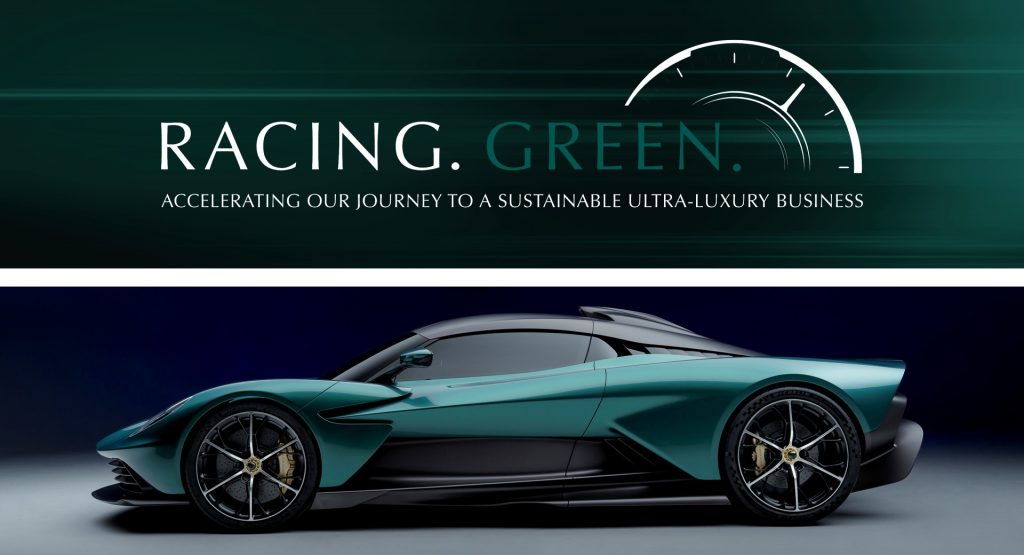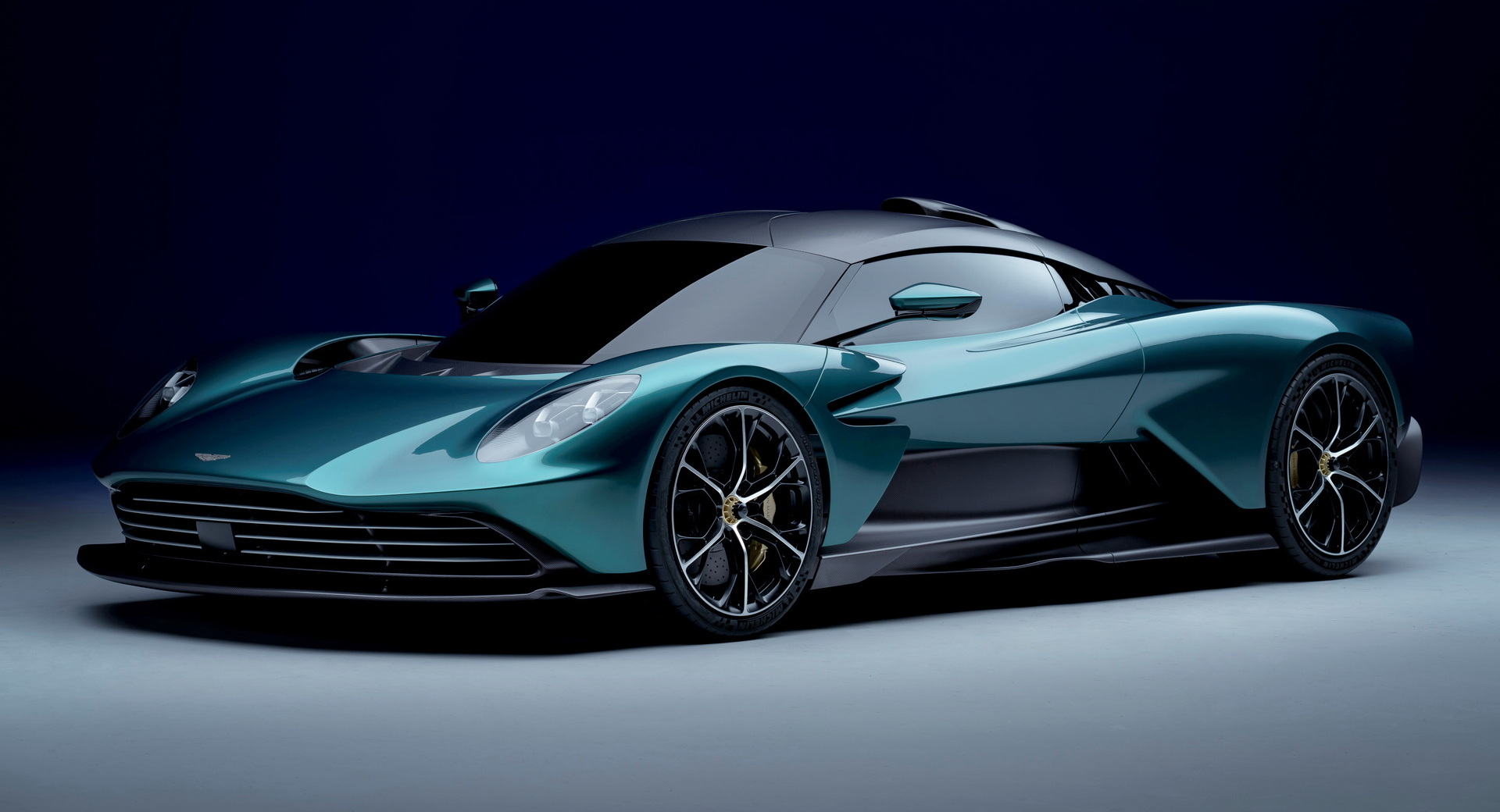Aston Martin laid out its electrification plans as part of the carmaker’s Racing Green strategy, fittingly announced on Earth Day. The British automaker will launch its first hybrid in 2024 and its first EV in 2025, with a fully electrified core range by 2030, when it will have net-zero emissions in its manufacturing facilities.
Starting with the new models, Aston Martin will start deliveries of the Valhalla plug-in hybrid supercar in early 2024. This will be the first electrified model followed by a fully electric (BEV) offering in 2025. Details on the latter have not yet been released but it could be the successor of the DB11 which is rumored to go electric alongside the next-generation Vantage.
Read Also: Aston Martin DB11, DBS And Vantage Slated To Receive Major Updates For 2023
Moving on, all Aston Martin product lines will have an electrified powertrain option (PHEV or BEV) by 2026. Finally, by 2030, the “entire core portfolio of GT, sports cars and SUVs” will be fully electrified, with the sentence leaving a small window of possibility for ICE-powered limited-production or track-only hypercars. This goal seems a bit less ambitious than the previous reports but it’s probably more realistic for a niche automaker with performance-focused offerings.
Aston Martin is a member of the Science Based Targets initiative (SBTi) and wants to align with the UN Sustainable Development Goals. Thus, besides electrifying its production models, Aston Martin pledged to net-zero emissions in its manufacturing facilities by 2030 while reducing supply chain emissions by 30 percent compared to 2020. By 2039, the automaker wants to reach net-zero emissions across the entire supply chain, with the goals overseen by a new Board Sustainability Committee.
Read Also: Aston Martin Partners With Britishvolt To Develop High-Performance Batteries
Aston Martin has already achieved a 44 percent reduction in emissions in its UK operations between 2020 and 2021 and is using 100 percent renewable energy in the UK manufacturing facilities since 2019. The company is also having all of its waste diverted from landfills. The next step is installing 14,000 solar panels in the St Athan site in Wales, covering up to 20 percent of its annual energy demands. The automaker also wants to eliminate all plastic packaging waste within the next three years, reduce water consumption by 15 percent, and maximize the use of sustainable materials like the green aluminum allow and leather-free vegan interior options.
Tobias Moers, CEO of Aston Martin Lagonda said his goal for the brand is to become a “world-leading sustainable ultra-luxury business”. The “Racing Green” strategy announcement also included a fun fact for the brand which has produced less than 109,000 vehicles in its 109-year history, with 95 percent of them estimated to still be up and running.







